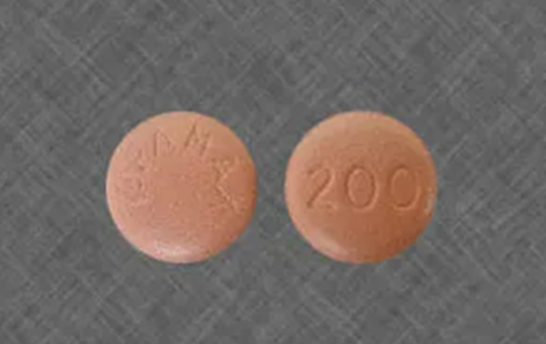Amiodarone
Sanofi India Ltd ,
Cipla Ltd
Cordarone 100mg Tablet 10s ,
Tachyra 200mg Tablet
Tachycardia ,
Ventricular Fibrillation
DRUG STATUS

Approvals
US. FDA / uk mhra / ema / pdma

Essential Medicine
WHO / India

Use in Pregnancy
Not Advised / Caution

Pharmaceutical Class
ama / pdma
Summary
Amiodarone is primarily used to treat and prevent serious heart rhythm problems, such as ventricular tachycardia and atrial fibrillation.
Amiodarone works by blocking certain electrical signals in the heart, which helps restore a normal rhythm. It can slow down the heart rate and stabilize the heart's electrical activity.
Amiodarone is typically started at 800-1600 mg per day in divided doses for 1-3 weeks, followed by a maintenance dose of 100-400 mg per day. It can be taken with or without food.
Common side effects of Amiodarone include nausea, vomiting, diarrhea, rash, dizziness, and fatigue. More serious adverse effects include thyroid problems, lung toxicity, and liver toxicity.
Amiodarone can cause serious side effects and is contraindicated in patients with certain heart conditions like heart block and low blood pressure. It can also interact with other medications such as warfarin and digoxin, so it's important to disclose any other medications you're taking to your healthcare provider.
Indications and Purpose
How does Amiodarone work?
Furosemide is a type of medicine that helps your body get rid of extra water and salt by making you pee more. This can help reduce swelling in your body and lower your blood pressure.
How does one know if Amiodarone is working?
Amiodarone's effectiveness is monitored by periodic ECGs and by checking the patient's heart rate, rhythm, and blood pressure. Patients should keep regular appointments with their healthcare provider to ensure that the medication is working effectively.
Is Amiodarone effective?
Amiodarone has been shown to be effective in multiple clinical trials and is widely used to treat arrhythmias. Studies have shown that Amiodarone can reduce the frequency of arrhythmias and improve heart rate, reducing the risk of stroke and cardiac death. It is effective in both the short-term and long-term treatment of arrhythmias.
What is Amiodarone used for?
Amiodarone is indicated for the treatment of various types of arrhythmias, including atrial fibrillation, ventricular tachycardia, and ventricular fibrillation.
Directions for Use
How do I take Amiodarone?
Amiodarone can be taken with or without food, but it is often recommended to take it with food to help minimize stomach upset. There are no specific food restrictions, but patients should avoid grapefruit and grapefruit juice, as they may increase the concentration of amiodarone in the blood, raising the risk of side effects. Always follow your doctor’s instructions for the correct dosage and timing.
How long does it take for Amiodarone to start working?
It takes time for certain medications to work on irregular heart rhythms. Even if you take a high initial dose, it can take up to 3 weeks to see results. This is because the medication needs to build up in your body and take effect.
How should I store Amiodarone?
For amiodarone tablets, keep them in a closed container at room temperature between 68 77°F. Protect them from light. Keep it away from light, heat, and moisture (not in the bathroom).
Warnings and Precautions
Can Amiodarone be taken safely while breastfeeding?
No, you shouldn't breastfeed while taking amiodarone. It can stay in your body for months after you stop treatment and may hurt your baby if it passes into breast milk. Talk to your healthcare provider about feeding your baby during treatment.
Can Amiodarone be taken safely while pregnant?
Amiodarone, a medication used for heart problems, can be risky for pregnant women. It can cross the placenta and affect the unborn baby. Possible side effects include thyroid problems, slow heart rate, developmental issues, preterm birth, and reduced fetal growth. Amiodarone can stay in the body for months even after treatment stops. If you're pregnant or planning to become pregnant, talk to your doctor about the potential risks and benefits of using amiodarone.
Can I take Amiodarone with other prescription drugs?
Amiodarone interacts with many prescription drugs, including warfarin, digoxin, statins, and beta-blockers. These interactions can increase the risk of side effects and may require dose adjustments. Patients should disclose any other medications they are taking to their healthcare provider before starting Amiodarone.
Can I take Amiodarone with vitamins or supplements?
People using Amiodarone should be aware of potential interactions with vitamins and supplements, such as calcium, iron, and vitamin E. These supplements can affect the absorption of Amiodarone, altering its effectiveness. Patients should discuss any vitamins or supplements they are taking with their healthcare provider before starting Amiodarone.
What are Amiodarone possible harms and risks?
Common side effects of Amiodarone include nausea, vomiting, diarrhea, rash, dizziness, and fatigue. More significant adverse effects include thyroid problems, lung toxicity, and liver toxicity.
Who should avoid taking Amiodarone?
Amiodarone can cause serious side effects, including thyroid problems, lung toxicity, and liver toxicity. It is contraindicated in patients with certain heart conditions, such as heart block, second- or third-degree atrioventricular block, and low blood pressure. Patients should also be aware of potential interactions with other medications, such as warfarin and digoxin.
Forms / Brands

Loreum Donec quis efficitur sem. 123

